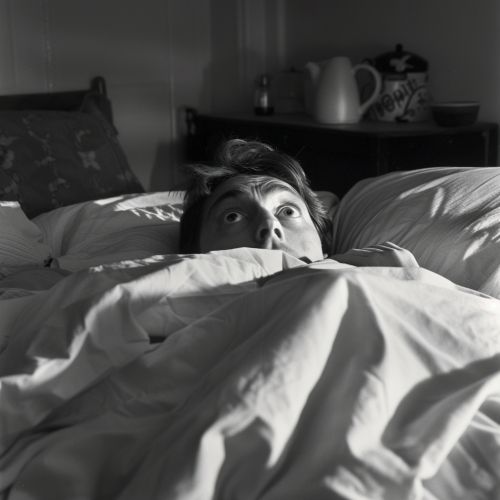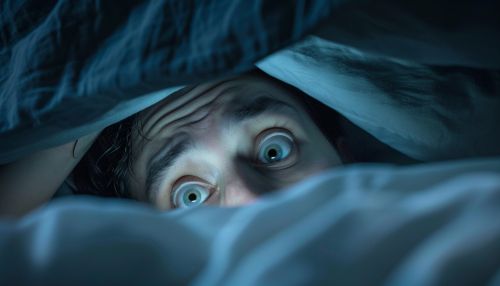Sleep Paralysis
Overview
Sleep paralysis is a state, during waking up or falling asleep, in which a person is aware but unable to move or speak. During an episode, one may hallucinate (hear, feel, or see things that are not there), which often results in fear. Episodes generally last less than a couple of minutes. It may occur as a single episode or be recurrent.


Causes
The cause of sleep paralysis is believed to involve a mixture of genetic, environmental, and psychological factors. It occurs more commonly in those who have a family history of the condition. Other factors that may increase the risk include a lack of sleep, changes in sleep schedule, mental conditions such as stress or bipolar disorder, certain medications, and substance abuse.
Pathophysiology
Sleep paralysis is believed to result from disrupted REM sleep, which normally induces complete muscle atonia to prevent the sleeper from acting out their dreams. Sleep paralysis has been linked to disorders such as narcolepsy, migraines, anxiety disorders, and obstructive sleep apnea; however, it can also occur in isolation. When linked with another disorder, sleep paralysis commonly occurs in association with the neurological sleep disorder narcolepsy.
Diagnosis
Diagnosis is typically based on a person's description. Other conditions that can present similarly include narcolepsy, atonic seizure, and hypokalemic periodic paralysis. Polysomnography can be useful to identify underlying sleep disorders such as narcolepsy and sleep apnea, but is not required for the diagnosis of sleep paralysis itself.
Treatment
Efforts to prevent episodes of sleep paralysis include getting enough sleep, reducing stress, exercising regularly, and maintaining a regular sleep schedule. Antidepressant medication has also been proven to be effective. If sleep paralysis is recurrent and disruptive to a person's sleep, a doctor may prescribe certain types of antidepressants that can help regulate sleep cycles.
Cultural Significance
Throughout history, sleep paralysis has been associated with experiences that have been described in various cultures as spiritual visitations, out-of-body experiences, alien abductions, and night terrors. In many cultures, sleep paralysis is understood in terms of supernatural phenomena, and is the subject of many myths and stories.
